Search Images
Browse Content (p. 1259)
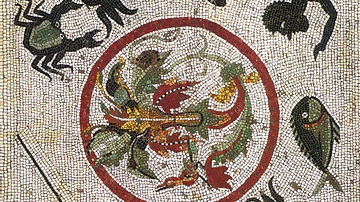
Image
Pompeii Fishing Mosaic
This mosaic is from the "House of Menander" in Pompeii and depicts two African men fishing. The work dates to the 1st Century CE and is currently in the National Archaeological Museum of Naples in Italy.
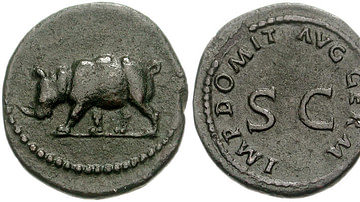
Image
Imperial Roman Coin Portraying a Rhinoceros
This Roman quadrans was minted in the reign of Domitian sometime between 84-90 CE and features a two-horned rhinoceros on the obverse. The coin commemorates the appearance of a two-horned rhinoceros in the Colosseum for the first time, where...
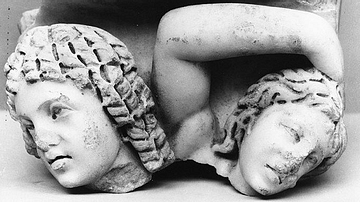
Image
Roman Sarcophagus Fragment Portraying an Aethiopian & Maenad
This fragment from the upper right corner of a sarcophagus portrays the head of a male Aethiopian (African) youth and a maenad. The piece dates to around the early 3rd Century CE and is a part of the Roman Sarcophagi Collection at the Metropolitan...

Image
Mehmed II Conquers Constantinople
A 19th century CE painting by Benjamin-Constant depicting the triumphant entrance of Mehmed II, Ottoman Sultan, after his successful siege of Constantinople in 1453 CE.

Image
15th-century CE Ottoman Cannon
A 15th-century CE bronze Ottoman cannon based on the design of those used in the siege of Constantinople in 1453 CE by Mehmed II.

Image
The Siege of Constantinople
A fresco depicting the siege of Constantinople in the 7th century CE, although the presence of canons clearly indicate it is based on the final and fatal siege of the city in 1453 CE. From the Church of Moldovita, Romania.

Image
Mehmed II
A 15th century CE portrait by G. Bellini of Mehmed II (r. 1451-1481 CE), Sultan of the Ottoman Empire and conqueror of Constantinople in 1453 CE.
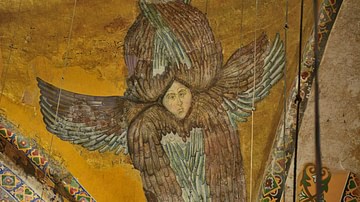
Image
The Seraphim Mosaic
The Seraphim Mosaic, Hagia Sophia, Istanbul. Around the Pantocrator mosaic from the 9th century CE which was on the central dome. The "seraphim’’ are depicted in red.
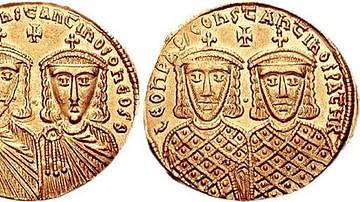
Image
Leo IV & Constantine VI
A gold coin depicting Byzantine emperor Leo IV (r. 775-780 CE) on the right and his son and successor Constantine VI (r. 780-797 CE) on the left. (Classical Numismatic Group, Inc. http://www.cngcoins.com)

Image
Seventh Ecumenical Council
An 11th century CE illustration of the Seventh Ecumenical Council which decreed the end of iconoclasm in the Byzantine Church, in September 787 CE. Emperor Constantine VI (r. 780-797 CE) is depicted sitting immediately right of the central...